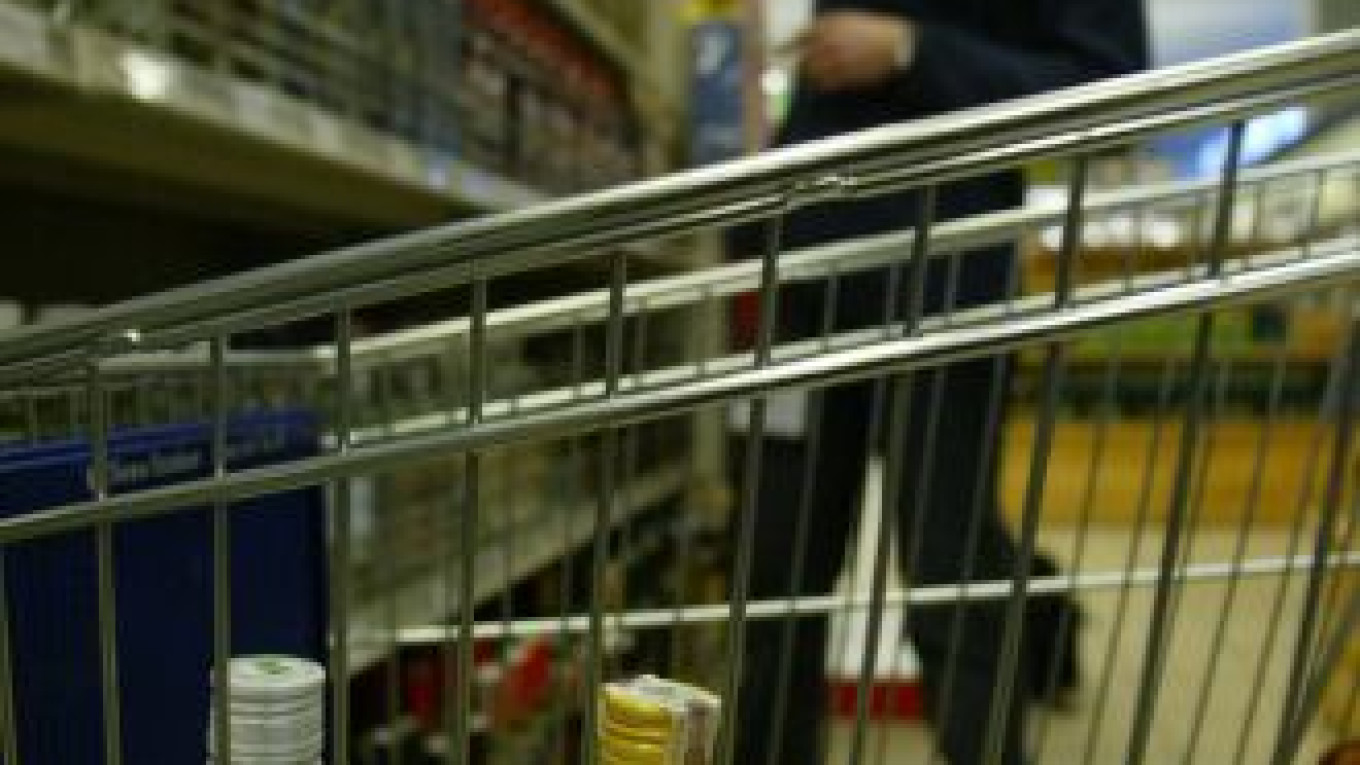The government said Friday that it scrapped the idea of hiking taxes on vodka, the latest in a string of rejections of revenue-raising proposals that are increasing the chances that Moscow may have to borrow to plug its budget deficit.
Cabinet spokesman Dmitry Peskov said the idea was ditched in a closed-door session Tuesday.
"There will not be a sharp, one-time rise" in excise duties on alcohol, Peskov said.
"Such a rise will have many negative side effects, including an increase in counterfeit alcohol production, which poses a threat to people's health."
Renaissance Capital analyst Ulyana Lenvalskaya said the move was politically motivated ahead of the 2012 presidential election. President Dmitry Medvedev and Prime Minister Vladimir Putin have not yet decided which one of them will run for the top job.
"This [tax hike] may prove to be politically unpopular among mass-market vodka drinkers, who are the biggest sector of the electorate," she said.
Russian vodka tax is currently one-fifth the British level on vodka and one-tenth the Swedish.
Russia expects to run a budget deficit equivalent to $77 billion this year, or 5.4 percent of gross domestic product. It borrowed $5.5 billion in eurobonds in April and vowed to stay away from the international capital markets for the rest of the year.
But on Friday, Finance Minister Alexei Kudrin indicated that Russia could tap the market again as early as this year with a ruble-denominated eurobond.
The vodka tax is the latest idea to be rejected after the State Duma voted down an income tax hike and the introduction of a luxury tax. A proposal to increase the mineral extraction tax has gone nowhere, as has property tax reform.
At the same time, the government has been increasing pensions and public sector salaries at an unprecedented rate while pledging continued state support for many sectors of the economy.
"This is an absolutely irresolvable contradiction. We are not raising taxes. Very difficult. We will need to save, review state spending, maybe we can cut something. We do not have a choice," Deputy Finance Minister Sergei Shatalov said.
The Finance Ministry had suggested increasing taxes on spirits to 330 rubles ($10.62) per liter in 2011 from the current 210 rubles, and to 490 rubles in 2012 and to 650 rubles in 2013, which it hoped would raise 705 billion rubles ($22.69 billion) in the next three years.
Alcohol taxes accounted for more than 30 percent of fiscal revenues in pre-revolutionary Russia, a number that gradually fell to about 14 percent in the 1930s and to 6 percent in the Soviet-era 1980s.
The state collected 4.4 billion rubles ($141.6 million) in alcohol tax in 2009, accounting for just 0.04 percent of the federal budget's revenues.
A Message from The Moscow Times:
Dear readers,
We are facing unprecedented challenges. Russia's Prosecutor General's Office has designated The Moscow Times as an "undesirable" organization, criminalizing our work and putting our staff at risk of prosecution. This follows our earlier unjust labeling as a "foreign agent."
These actions are direct attempts to silence independent journalism in Russia. The authorities claim our work "discredits the decisions of the Russian leadership." We see things differently: we strive to provide accurate, unbiased reporting on Russia.
We, the journalists of The Moscow Times, refuse to be silenced. But to continue our work, we need your help.
Your support, no matter how small, makes a world of difference. If you can, please support us monthly starting from just $2. It's quick to set up, and every contribution makes a significant impact.
By supporting The Moscow Times, you're defending open, independent journalism in the face of repression. Thank you for standing with us.
Remind me later.


